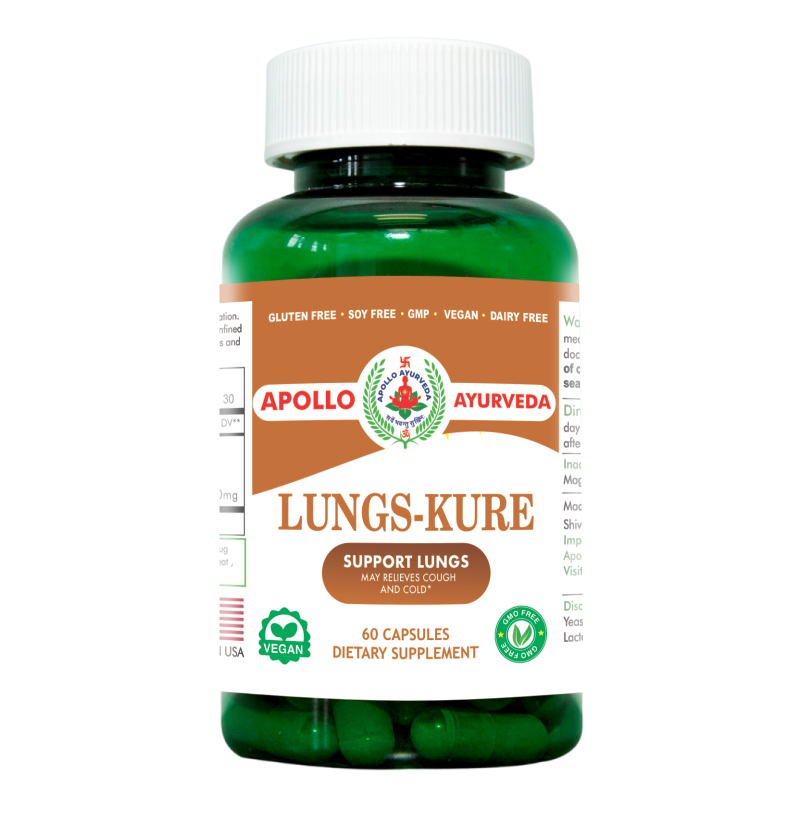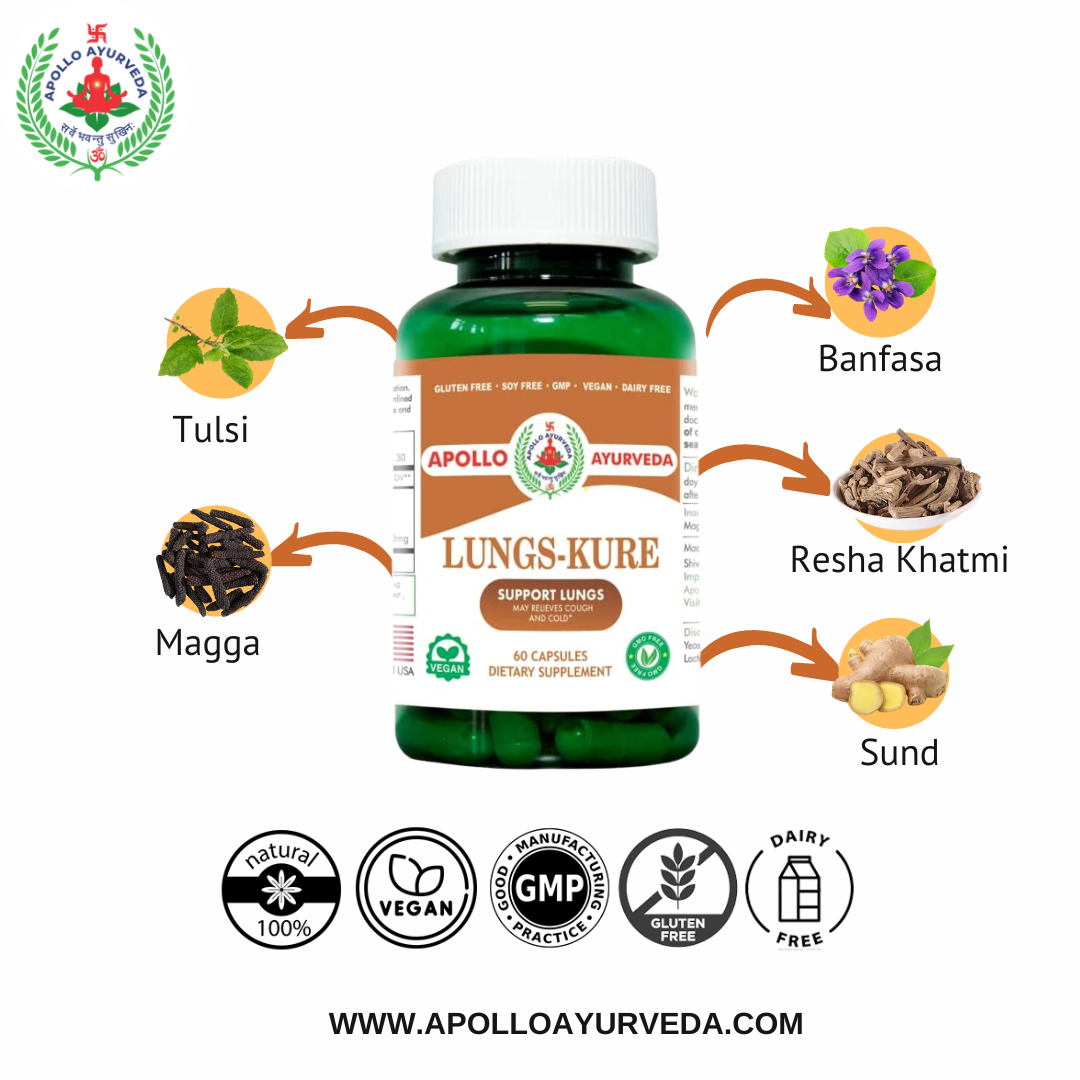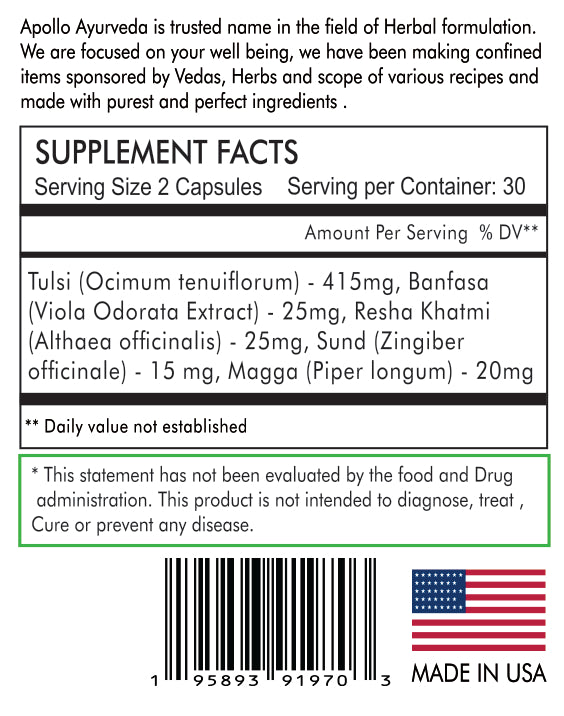Tulsi
Share
ABOUT TULSI
Ocimum tenuiflorum, also known as Ocimum sanctum, Holy Basil, Shama Tulsi, and flowering plants of the mint family, belong to the family Lamiaceae. It originates from the Indian subcontinent and is extensively grown for its valuable medicinal properties and spiritual significance. The aromatic leaves and distinct smell distinguish this exceptional plant.
The botanical name for Tulsi is Ocimum Tenuiflorum.
MORE ABOUT TULSI
- Dosha of Tulsi
- Traditional Uses of Tulsi
- Benefits of Tulsi
- Scientific research about Tulsi
- Precautions or Side Effects of Tulsi
- How anyone can incorporate the Tulsi into their routine?
Dosha of Tulsi
Holy Basil Shama Tulsi is recognized for its ability to balance the Vata, Pitta, and Kapha doshas. The three doshas in Ayurveda are Pitta for fire and water, Vata for air and ether, and Kapha for earth and water. Holy Basil Shama Tulsi promotes general health and energy by balancing these energies.
Traditional Uses of Tulsi
- Tulsi, also referred to as the “elixir of life,” encourages long life.
- Various plant parts are employed in the Ayurvedic and Siddha medical systems for the treatment and prevention of disease.
- Tulsi leaves can be chewed to treat infections and ulcers in the mouth and also improve memory.
- Tulsi is frequently used in homemade medicines for respiratory problems, wounds, hepatic problems, earaches, hiccups, viral infections, spine pain, and infant blindness.
- Tulsi has a variety of beneficial characteristics, including those that are appetizing, ambrosial, relieve flatulence, induce sweating, anthelmintic, calm mucus irritation, diuretic, alexiteric, antipyretic, and expectorant.
The pharmacological activities of Tulsi (Ocimum sanctum) include Immunomodulatory activity, Antimicrobial activity, Anti-inflammatory activity, Antioxidant activity, Adaptogenic activity, and Cardiovascular activity.
Benefits of Tulsi
Respiratory wellness
The herb tulsi is highly effective in treating respiratory conditions like asthma. Various respiratory conditions including colds can be treated at home with Tulsi leaves. Natural expectorant properties of Holy Basil Shama Tulsi help in mucus discharge and support clear, unrestricted breathing.
Strengthen immunity system
Holy basil tulsi is rich in zinc and vitamin C. It strengthens the immune system naturally and protects against infections. Its unique qualities include strong antiviral, antibacterial, and antifungal properties, which protect us from numerous infections.
Antipyretic and analgesic activities
The antipyretic and analgesic activities of tulsi significantly reduce fever and pain. Its antiviral and antibacterial activities help to fight infections and lower fever.
Stress Reduction and Relaxation
One of the most well-known uses of holy basil is for its adaptogenic effects, which help the body adjust to stress and promote calm and relaxation. It has the power to ease anxiety, enhance mental clarity, and uplift mood which helps to lower stress and foster a peaceful state of mind.
Anti-cancer activity
Tulsi has phytochemicals that have strong antioxidant qualities. These phytochemicals are essential in protecting our bodies against cancer, including skin, liver, mouth, and lung cancer. These antioxidants protect our cells from damaging free radicals and fight them, lowering the chance of cancer formation and enhancing overall health.
Scientific research about Tulsi
Anti-cancer activity
Extracts of tulsi have demonstrated positive anti-cancer effects. They influence the carcinogen-metabolizing enzymes, cause apoptosis in lung and breast cancer cells, and inhibit matrix metalloproteases. Additionally, Tulsi has anti-proliferative and chemopreventive effects on colorectal and cervical cancer cells.
Antidepressant activity
At 200 mg/kg, Ocimum sanctum extract showed motor-depressant effects, while at 50 mg/kg, it showed potential as an antidepressant by decreasing immobility times. In other tests, it also demonstrated antianxiety activity. These findings indicate Ocimum sanctum extract’s therapeutic potential for diseases related to anxiety, depression, and motor function.
Precautions or Side Effects of Tulsi
Holy Basil Shama Tulsi is typically safe to eat, however, there are some precautions to take;
- Although Holy Basil Shama Tulsi is typically harmless, some people may experience allergic reactions.
- Stop using it immediately and consult a doctor if you notice any negative side effects.
- Holy Basil Shama Tulsi may interact with several medications, particularly anticoagulants or blood thinners.
- If you are taking any drugs, speak with a medical practitioner before using Holy Basil Shama Tulsi.
How anyone can incorporate the Tulsi into their routine?
Incorporate Holy Basil Shama Tulsi into your daily life in the following ways:
Herbal Teas and Infusions
Brew Holy Basil Shama Tulsi leaves to make a reviving tea or infusion and take advantage of its health advantages.
Uses in cooking
Add Holy Basil Shama Tulsi leaves to soups, stews, salads, or smoothies to give them a distinctive flavor and perhaps some health benefits.
Cold Extract
Cold extracts are known to retain the beneficial compounds of Tulsi and are used for their immune-boosting, stress-reducing, and antioxidant effects.
Ghrit (Medicated Ghee)
Ghrit is often used in Ayurvedic formulations for its ability to support respiratory health, boost immunity, and promote overall well-being.
Medicinal Powder
Tulsi medicinal powder is valued for its antioxidant, anti-inflammatory, and antimicrobial properties, offering a wide range of health benefits.








